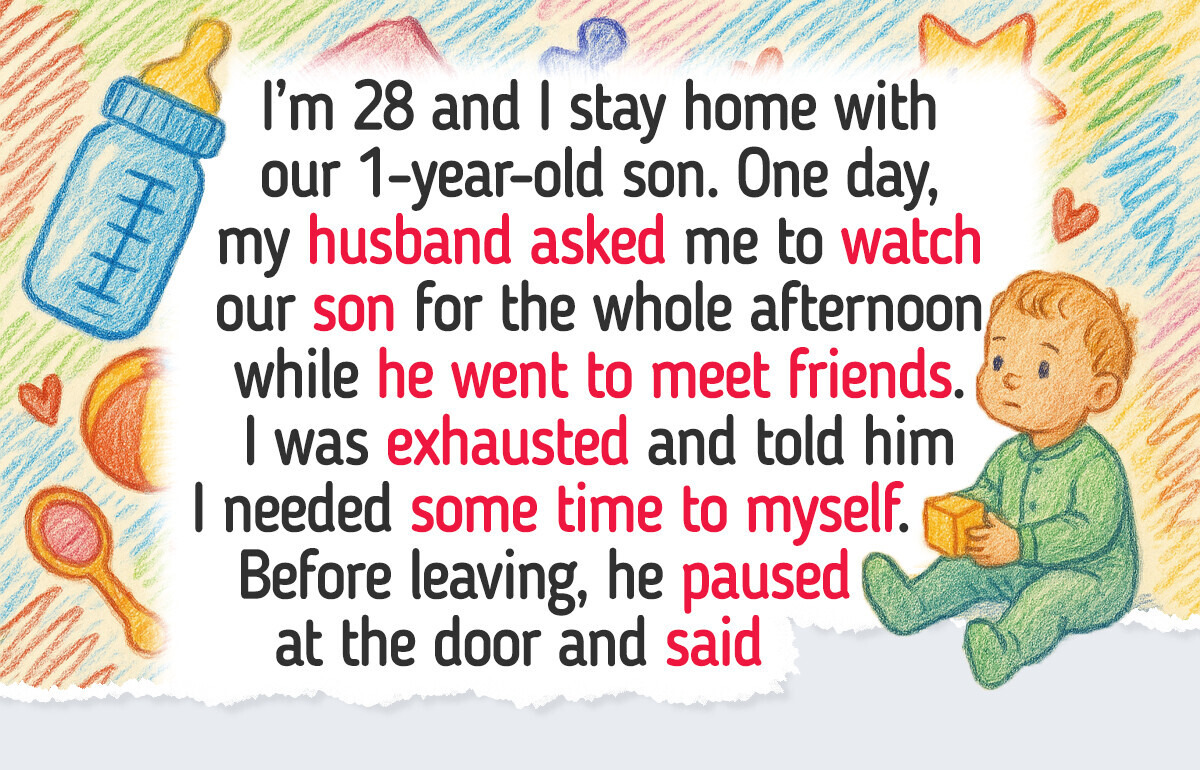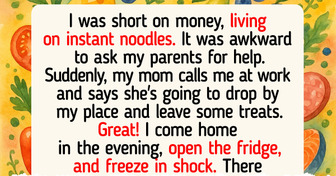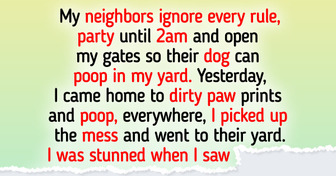A Husband Refused to Help His Pregnant Wife and Said “My Mom Comes Before You”


Parenting is supposed to be a partnership—a shared journey of raising children, managing a home, and navigating the constant demands of family life. This is a story from our reader about drawing boundaries, demanding accountability, and challenging the cultural and relational patterns that quietly excuse fathers from fully stepping into parenthood.
I’m 28, and I stay home with our 1-year-old son. I love him so much, but lately I’ve been feeling really burnt out. I’m the one doing everything: feeding, diapers, bedtime, playing, planning meals, all of it. Even when my husband is home from work, it still mostly falls on me.
One day, my husband asked me to watch our son for the whole afternoon while he went to meet friends. I was exhausted and told him I needed some time to myself. When I refused, he didn’t get upset, but then he told me to go and take care of our son because he is going out. Before leaving, he paused at the door and said, “It’s not like I get much time off either” and just left.
That comment really stuck with me. It’s not just about that one afternoon. It’s more about how I feel like I always have to explain why I’m tired or ask for permission to rest, while he can just decide to take time whenever. I’m starting to feel kind of invisible in all of this.
Am I wrong for thinking something’s not right here?
You’re absolutely not wrong for feeling like something is off. Your exhaustion, emotional strain, and growing resentment are real and valid—and they’re signals that the balance in your relationship and parenting dynamic needs serious attention. Here are pieces of helpful advice to navigate this situation.
Honesty keeps relationships simpler. Avoiding hard conversations only delays healing. Talk directly to the person involved—going through others just makes things messier. Set aside time when things are calm—not in the heat of a moment—to talk to your husband.
Be clear and specific: Describe how you feel (“I feel invisible and burnt out”), use examples, like the afternoon he left. Focus on how the imbalance is affecting you and the relationship, not just your workload.
Healthy boundaries are key to stronger relationships—whether with partners, family, friends, or coworkers. They help protect your well-being, boost self-respect, and prevent unhealthy dynamics.
Start redefining what shared parenting looks like. You can say things like, “Weekends are 50/50,” or “You’re in charge of bedtime every other night.” Be specific. Vague agreements usually lead to the same patterns.
Parenting is rewarding but exhausting. Sleepless nights and endless tasks make rest feel impossible. Yet, prioritizing rest isn’t selfish—it’s necessary. Taking care of yourself helps you be your best for your kid.
You shouldn’t have to earn rest or ask for permission. Pick regular times during the week that are just yours. Whether it’s an hour alone at a café or a Saturday morning to yourself, block it like an appointment.
Parenting isn’t easy, and it’s okay to feel overwhelmed sometimes. What matters most is finding balance and support that works for you and your family. How do you navigate sharing the load in your own parenting journey?











